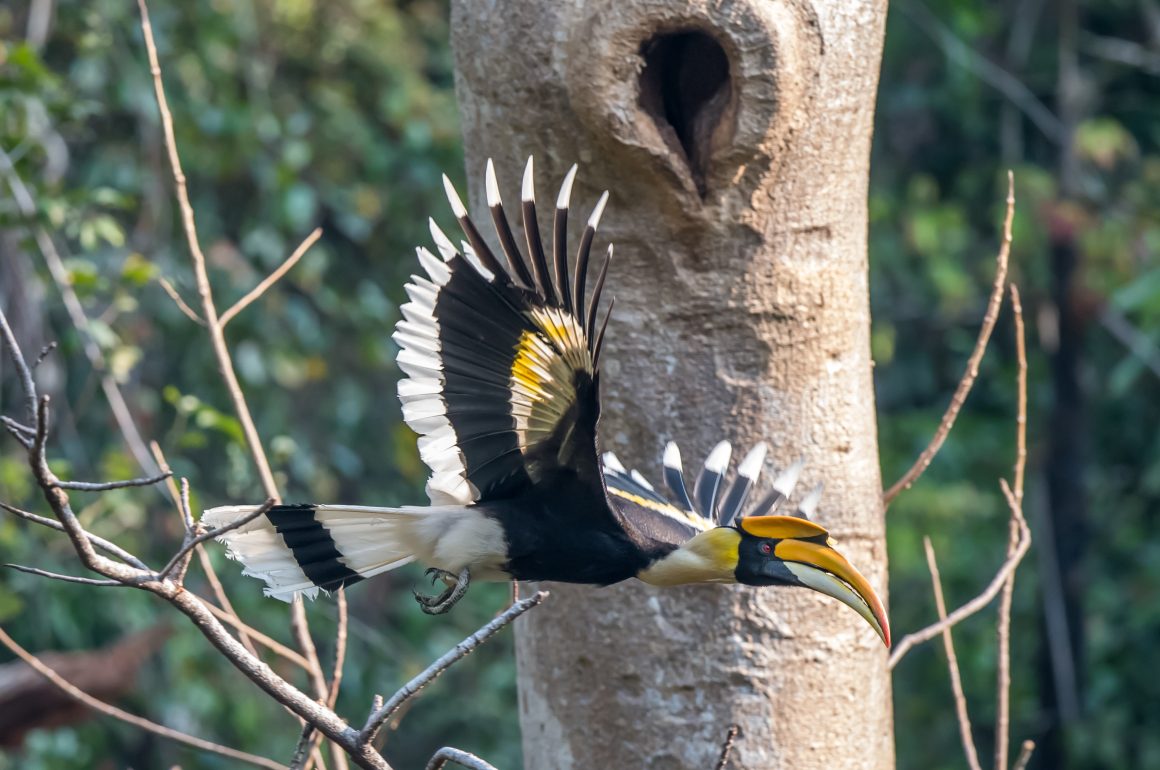
China is not that well-known for its hornbills, but in Yunnan province, on the border to Myanmar, some species can be found. While they used to be hunted, they nowadays benefit from the locals having recognized them as a source of income – building hides and charging birdwatchers (mostly Chinese, but a few foreigners like me as well – these are usually the only ones not smoking inside the hides) to observe them.
The most common one is the Oriental Pied Hornbill. It can even be found in Singapore, a place that I have once heard being described as “Frankfurt with air conditioning”.
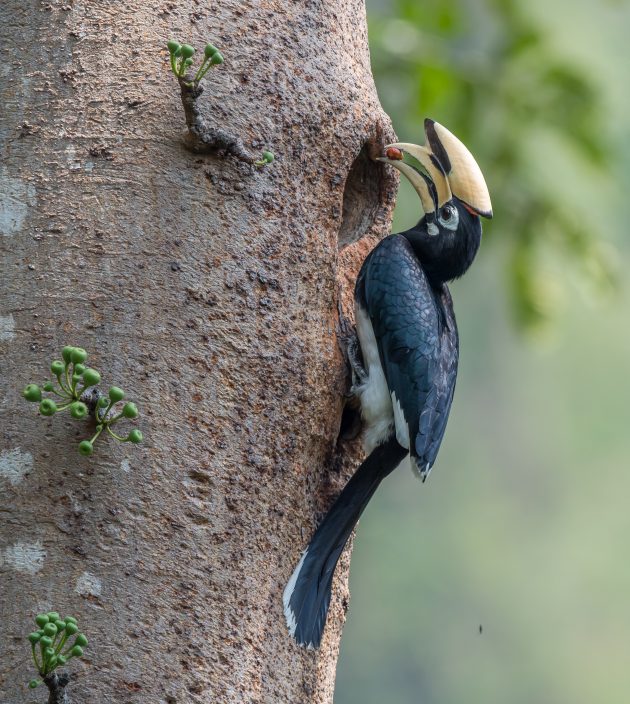
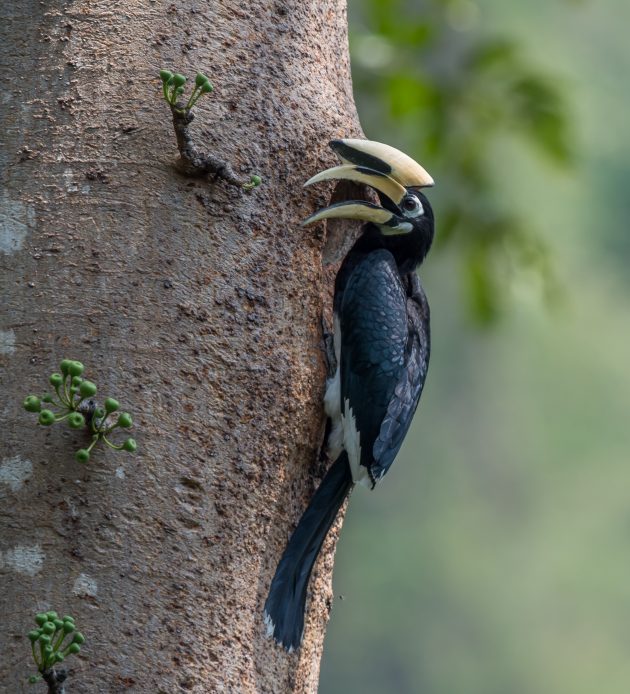
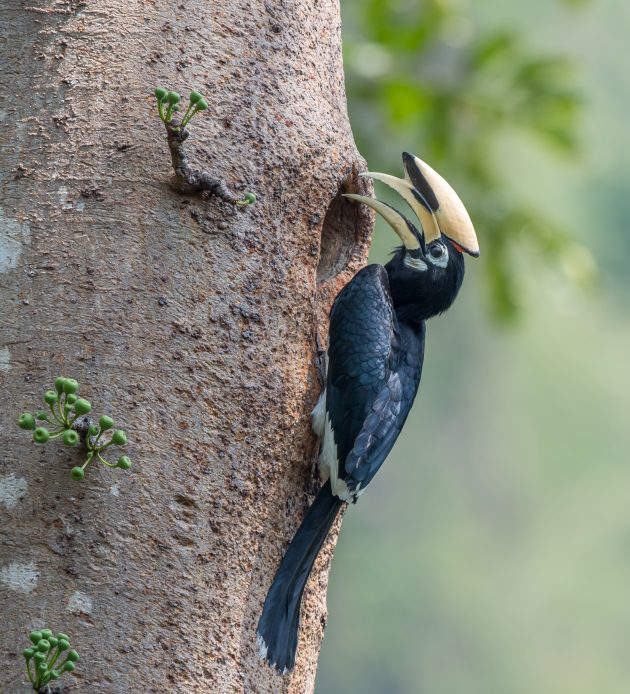
The Great Hornbill is much rarer. This is not due to its breeding habits, which it shares with the other hornbills – though those habits could well be described as appalling. Just locking your wife and chicks into a tree hole and feeding them with fruit during a small slit may well give the chicks the wrong idea about gender roles in life – and in fact, it seems most male Great Hornbill chicks just behave the same way once they are adult males themselves. On a positive note, it makes it easier for those male hornbills that do not like kids to focus on what they are good at (collecting fruit and handing them to the wife through a slit in the hole).
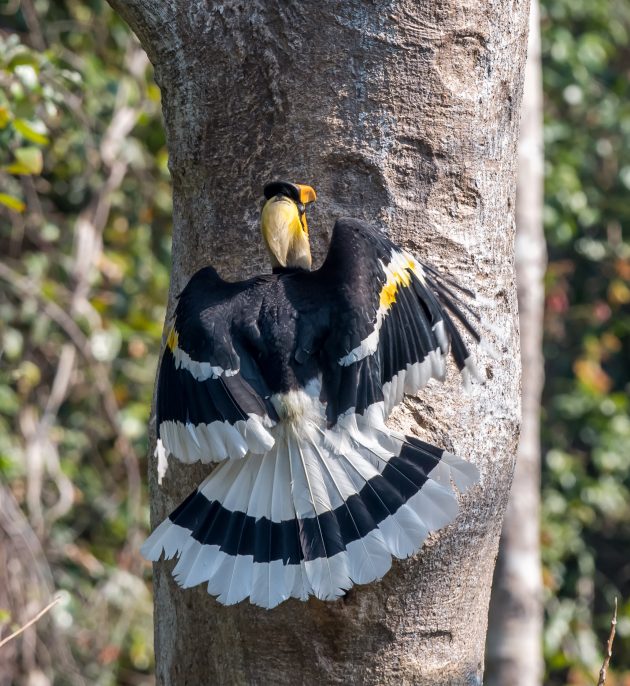
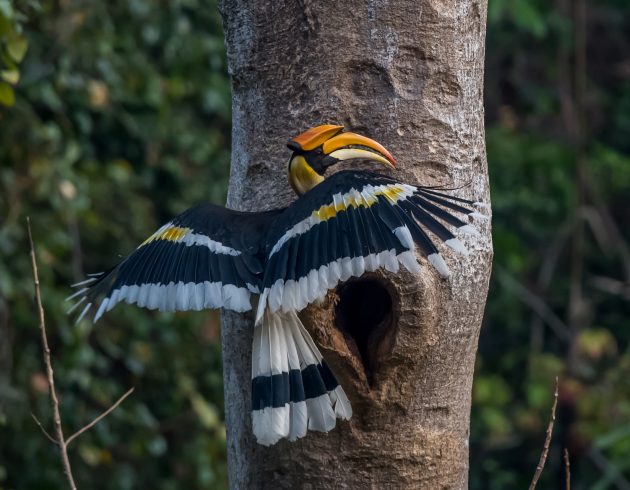
Arriving at the nesting hole
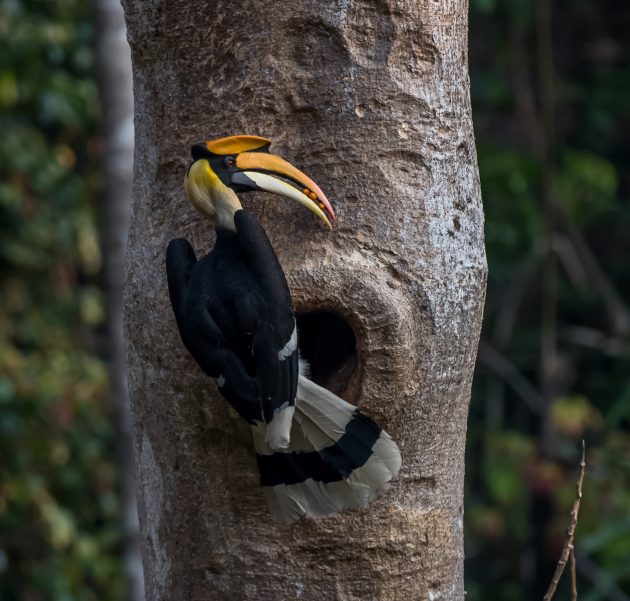
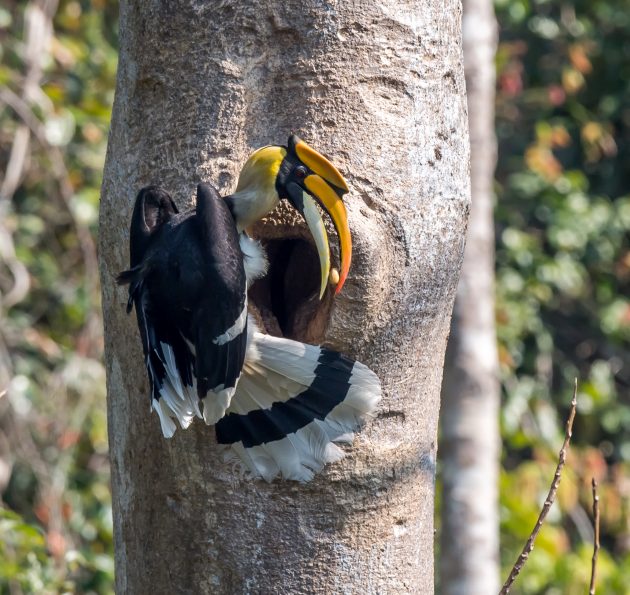
Regurgitating fruit
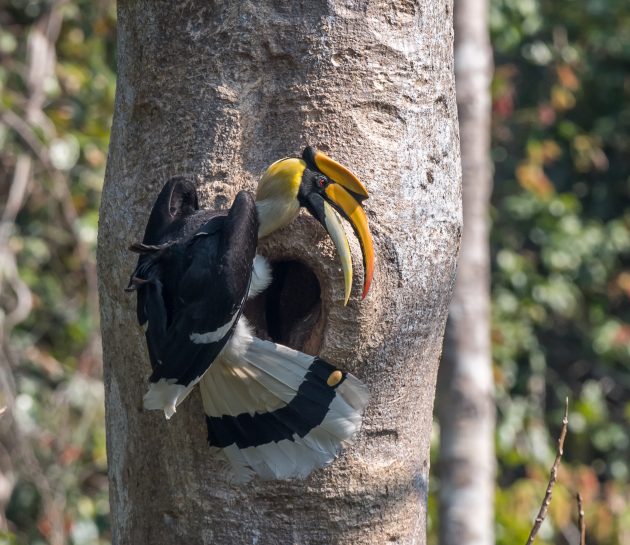
Being clumsy while regurgitating fruit
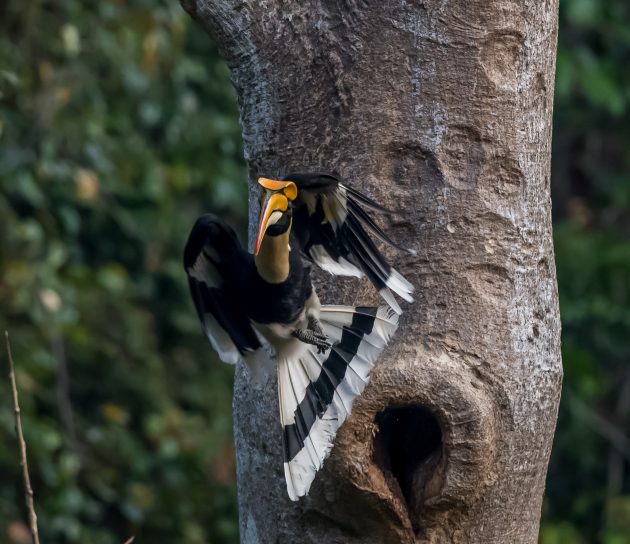
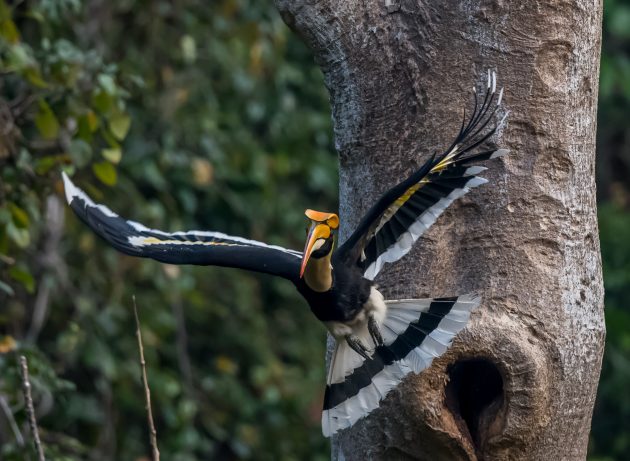
Leaving the nesting hole
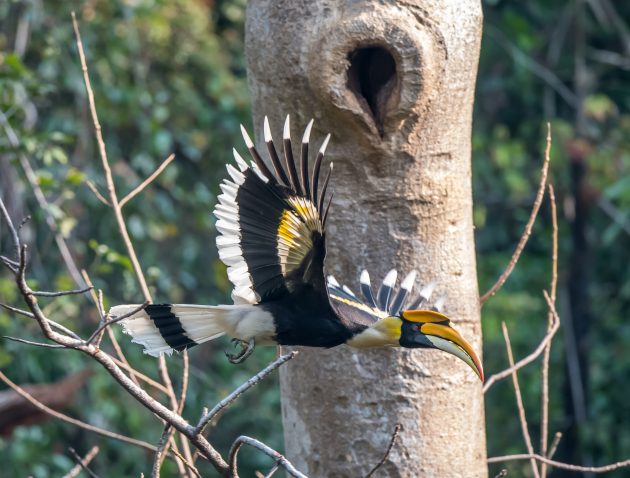
Searching for more fruit
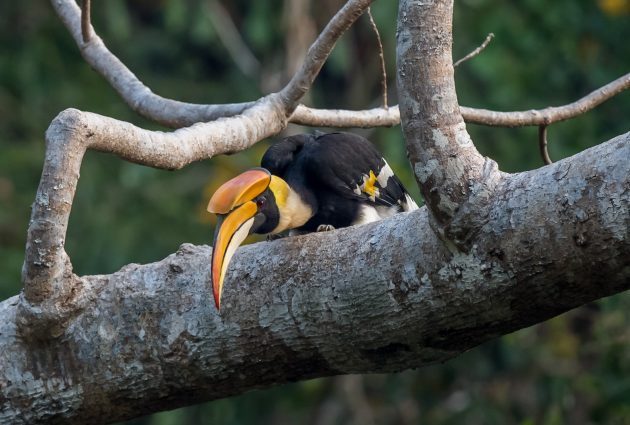
Taking a rest
Like the Great Hornbill, the Wreathed Hornbill is also classified as vulnerable. The bird in the photo is a male, as indicated by the yellow rather than blue throat sack – and by the fact that it is outside of the hole at breeding time (the female is in the hole).
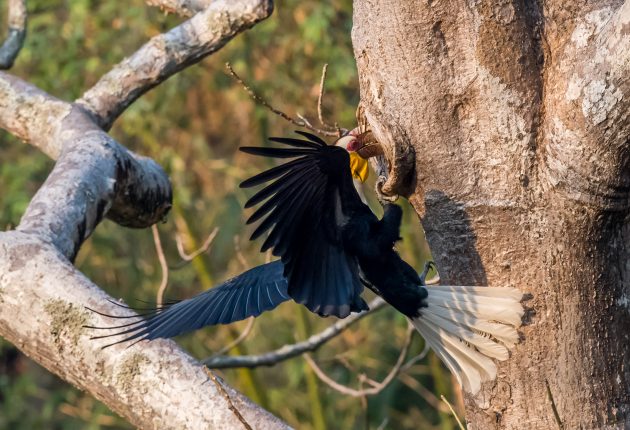
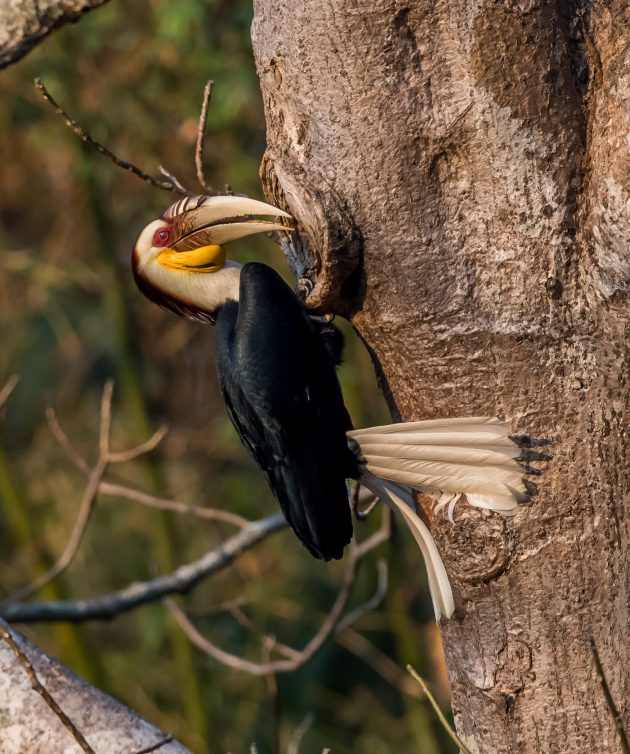
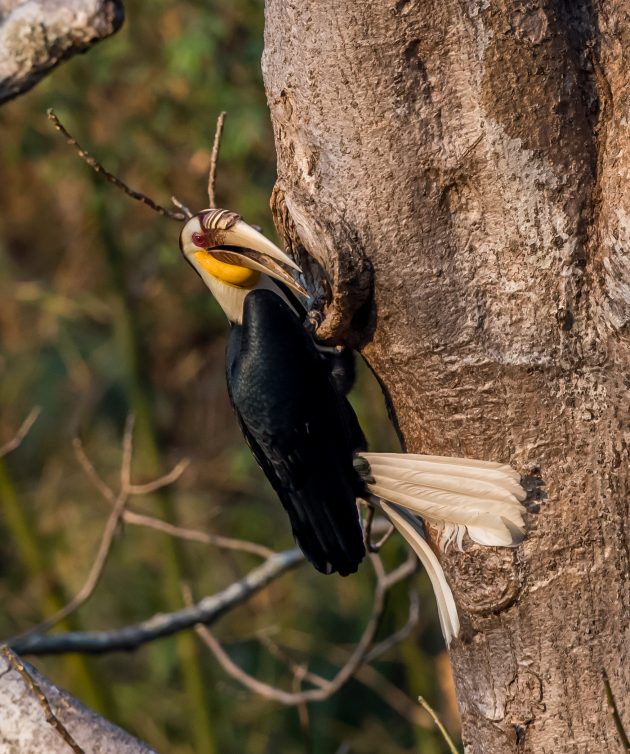
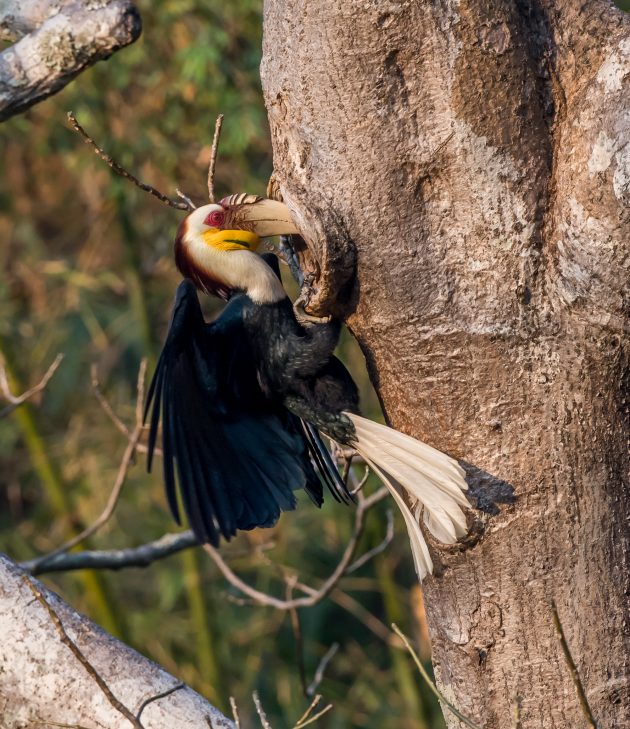
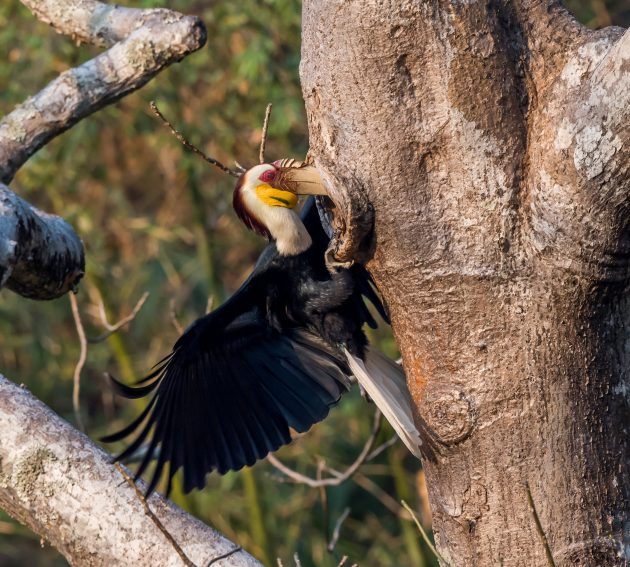
Visiting the family
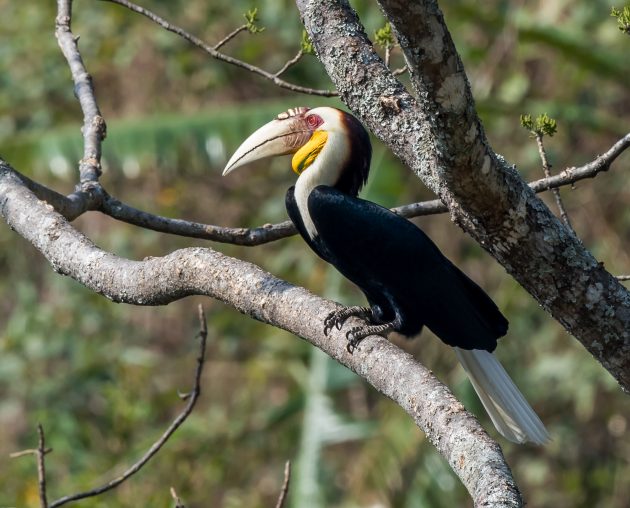
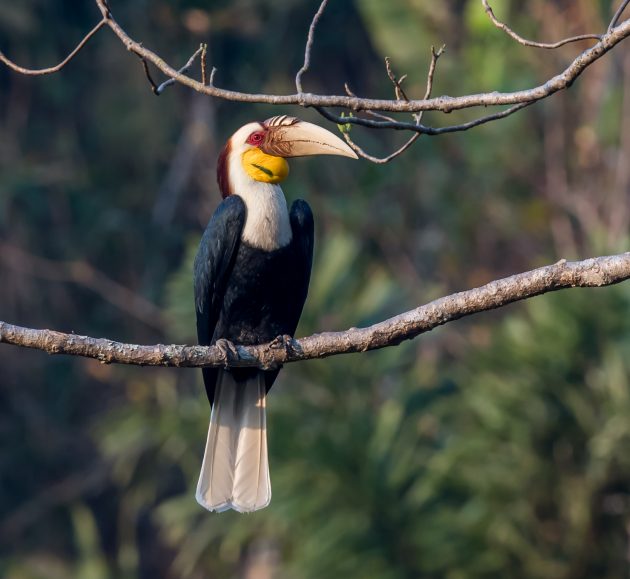
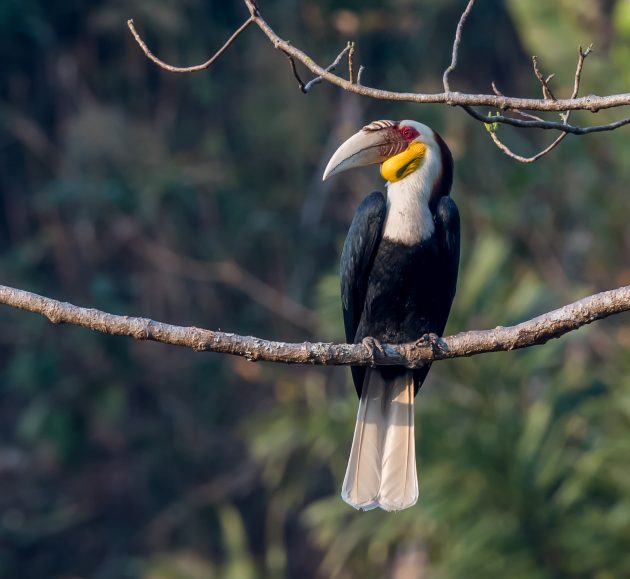
Resting







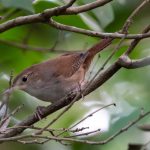

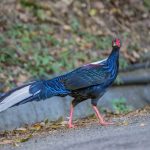

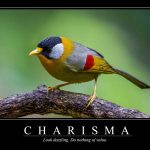
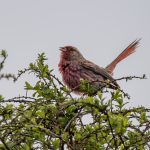

Leave a Comment